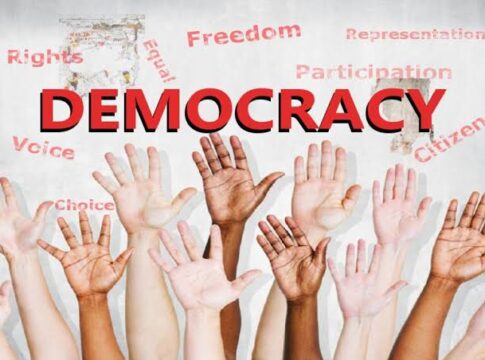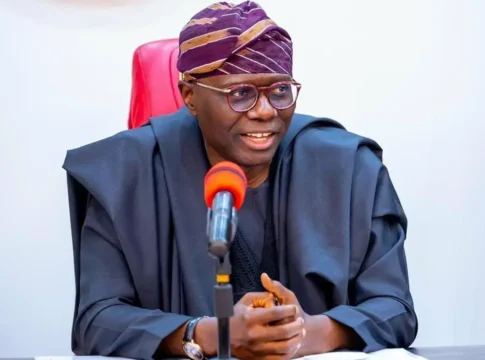By: Kingsley Enwelim Nwanze
In the intricate tapestry of democratic governance, the ability to express alternative viewpoints is not merely a luxury rather a fundamental necessity. The essence of democracy lies in its capacity to accommodate diverse perspectives, opinions, viewpoints, etc. fostering an environment where ideas can be debated, challenged, and refined. This process of venting alternative thinking is crucial for the health of any democratic system, as it ensures that governance remains responsive, inclusive, and adaptive to the needs of its citizens.
The true essence of a vibrant democracy is the principle of pluralism, which recognizes that society is composed of individuals with varying beliefs, values, and experiences. When citizens are encouraged to voice their opinions, even those that diverge from the mainstream, it enriches the public discourse. This diversity of thought is essential for several reasons. Primarily, it gives room for critical thinking and innovation. When alternative ideas are presented, they challenge the status quo, prompting policymakers to reconsider or review existing frameworks and explore new solutions to pressing issues. This dynamic is particularly important in an era marked by rapid technological advancements and complex global challenges, where conventional approaches may no longer suffice.
Furthermore, the venting of alternative thinking serves as a vital check on power. In any democratic system, there is a risk of complacency or authoritarianism, particularly when a single party or ideology dominates the political landscape. By allowing dissenting voices to be heard, democracies can prevent the entrenchment of power and ensure that governance remains accountable to the people. This is particularly relevant in the context of social movements and grassroots activism, which often emerge from marginalized communities advocating for their rights and interests. These movements not only highlight systemic injustices but also push for policy changes that reflect a broader spectrum of societal needs.
Furthermore, the act of venting alternative ideas fosters a culture of engagement and participation among citizens. When individuals feel that their voices matter and that their contributions can influence decision-making, they are more likely to engage in the democratic process. This engagement can take many forms, from voting and attending town hall meetings to participating in public forums and discussions. A politically active citizenry is essential for a healthy democracy, as it ensures that elected officials remain attuned to the concerns of their constituents. In contrast, a lack of alternative thinking can lead to apathy and disillusionment, undermining the very foundations of democratic governance.
READ MORE: Mozambique’s Opposition Rejects Vote Result, Ruling Party Calls For Dialogue
However, the importance of venting alternative thinking in a democracy is not without its challenges. In recent years, many democracies have witnessed a rise in polarization, where individuals are increasingly entrenched in their beliefs and less willing to engage with opposing viewpoints. This phenomenon can stifle constructive dialogue and create an environment where dissent is viewed as a threat rather than a valuable contribution. To counteract this trend, it is essential for democratic institutions to actively promote spaces for open dialogue and debate. This can be achieved through educational initiatives that emphasize critical thinking, media literacy, and the importance of civil discourse.

Additionally, social media platforms, while providing a space for alternative voices, can also amplify polarization by creating echo chambers,that is, an environment as seen most often on social media where individuals are exposed primarily to information, opinions, and beliefs that reinforce their existing views. In these spaces, dissenting perspectives are minimized or excluded, leading to a lack of diverse opinions and critical discourse. It is crucial for these platforms to implement measures that encourage diverse perspectives and facilitate respectful conversations. By fostering an online environment that values alternative thinking, we can enhance the democratic process and ensure that all voices are heard.
In conclusion, venting alternative thinking is not just an ideal; it is a necessity for healthy governance in a democracy. By embracing diverse perspectives, democracies can foster innovation, power accountability, and engage citizens in meaningful ways. As we navigate the complexities of the modern world, it is imperative that we cultivate a culture that appreciates dissent and encourages open dialogue. Only then can we ensure that our democratic systems remain robust, responsive, and truly representative of the people they serve. In doing so, we not only strengthen our governance but also enrich the very fabric of our society.




